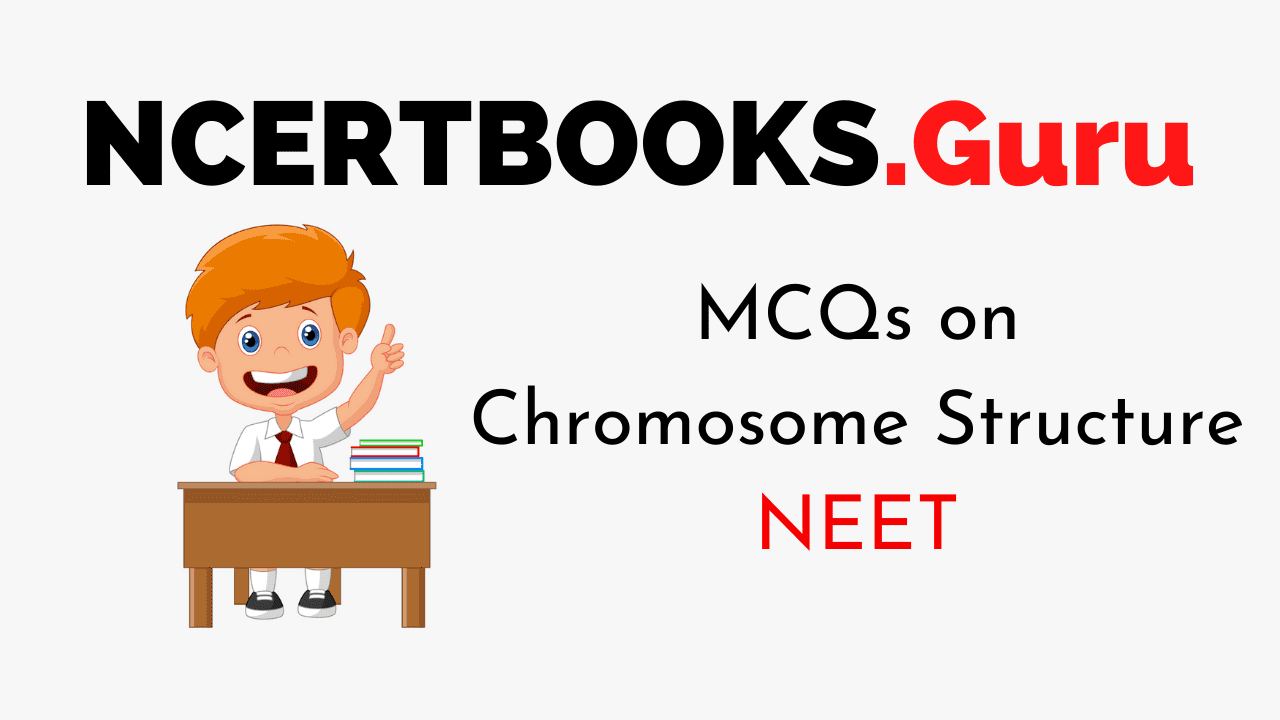NEET Biology is the scoring paper in the medical entrance examination. Here, you will discover the NEET Biology MCQ Questions for all Concepts as per the latest syllabus. Practice more on a regular basis with these NEET Biology objective questions on air pollution and improve your subject knowledge & problem-solving skills along with time management. NEET Biology Chromosome Structure Multiple Choice Questions make you feel confident in answering the question in the exam & increases your scores to high.
MCQs on Chromosome Structure
1. The least level of chromosome organization is
(a) 30nm fibre
(b) solenoid
(c) nucleosome
(d) none of the above
Answer
Answer: (c)
2. This has the largest number of chromosomes
(a) Pisum sativum
(b) Giant redwood tree
(c) Haplopappus gracilis
(d) Ophioglossum reticulatum
Answer
Answer: (d)
3. A chromosome with a very short arm and a very long arm is referred to as
(a) Metacentric
(b) telocentric
(c) Acrocentric
(d) Sub-metacentric
Answer
Answer: (c)
4. A chromosome is the thickest during
(a) anaphase
(b) prophase
(c) interphase
(d) metaphase
Answer
Answer: (d)
5. The diagrammatic representation of karyotype (morphological representation of chromosomes) of a species is known as
(a) Cladogram
(b) Ecogram
(c) Chromogram
(d) Idiogram
Answer
Answer: (d)
6. If Bb is a gene pair of an individual then the alleles for this gene pair are
(a) A and B
(b) a and A
(c) a and b
(d) b and B
Answer
Answer: (d)
7. Euchromatin
(a) stains lightly
(b) is partially condensed
(c) genetically active chromatin with genes
(d) all of the above
Answer
Answer: (d)
8. The point at which polytene chromosomes appear to be attached together is known as
(a) centriole
(b) centromere
(c) chromomere
(d) chromocenter
Answer
Answer: (d)
9. In which typical stage are Lampbrush chromosomes observed?
(a) meiotic prophase
(b) mitotic metaphase
(c) mitotic prophase
(d) mitotic anaphase
Answer
Answer: (a)
10. Each of the chromosome at the anaphase stage of a bone marrow cell in our body has
(a) one chromatid
(b) two chromatids
(c) several chromatids
(d) no chromatids
Answer
Answer: (a)
